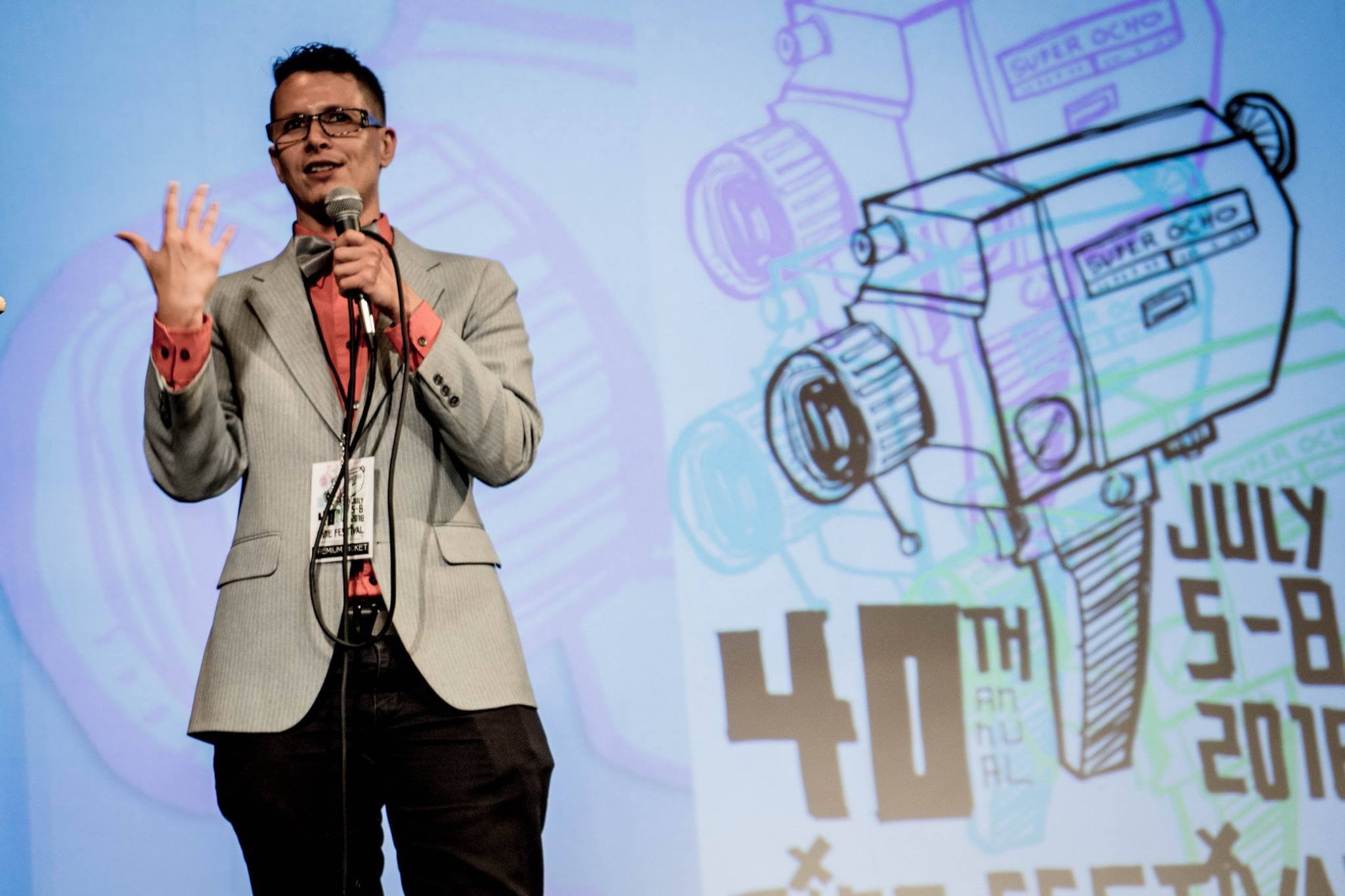
Press
We were featured in a flurry of news stories leading up to the premiere including interviews in the Advocate, Logo’s New Now Next, and MetroSource among others.
Excerpts from interviews with the Director
Q: Tell us about AMERICA IN TRANSITION. (UK)
A: America in Transition celebrates queer people fighting for their right to stay and highlights the legacy of queer culture that has managed to thrive despite hostility. We are caught in a culture war, as Southern lawmakers fight to protect the supposed “right” to discriminate against us. The world is changing for the privileged trans people we see in mainstream media, but immigrants, people of color, and people of faith live in a different world. America in Transition strives to display the intersections of identity, culture, and geography in this crucial social moment.
Q: How do you think content like this would have affected you when you were growing up and figuring out your own identity? (The Advocate)
A: As a Puerto Rican trans man growing up in the South, I was steeped in a conservative culture that never imagined my existence. My first media encounter was my stepfather screaming epithets at the TV during Jerry Springer’s “my girlfriend’s a man” episode. I didn’t see myself in that person on any conscious level, but I still felt confused and sad at my family’s reactions. I hope that seeing America in Transition would have given my family and community a totally different way of interpreting my gender presentation which could, in turn, have helped them become more supportive of me before I even was at a point where I could understand myself as trans.
Q: Why did you decide to make America in Transition? (UK)
A: I founded the Transgender Oral History Project in 2008, and by 2015, the media was finally beginning to recognize our community. Laverne Cox was on the cover of TIME, which the media heralded as the “transgender tipping point,” but I knew that the communities I come from were in a very different place so I set out to make media that people could identify with that went beyond the basics talking about intersectional experiences. I couldn’t have known how right I was until 2016 and 2017 brought some of the most regressive civil rights legislation in modern US history allowing therapists to refuse trans patients, allowing corporations to exercise “freedom of religion” by firing trans people and forcing trans children to face vicious attacks in local school board meetings. Trans people have become the targets of radical social conservatives who are leveraging fear and ignorance to create a hateful social climate. I hope America in Transition is an antidote to those trends that can drive meaningful conversation, activate allies, and help trans people connect with one another to stand up to the bullies.
Q: What is the main message you’re trying to send with America in Transition? (Charlotte Roi)
For too long, media about trans experience has focused on our challenges with our own bodies, but the real story of this moment is how our society is changing. It’s time for our mothers, our partners, and our co-workers to become accomplices in our liberation.
Q: What was the biggest learning from making the docuseries? (UK)
A: The process of making this series has been one of the most difficult and rewarding experiences of my life. Of course, I’ve learned so much about how trans people all over this country are standing up to the bigotry and discrimination we face from the fight to decriminalize HIV to how the immigration system is structured to keep everyday people from understanding the corruption and violence at play. On a personal level, America in Transition (AIT) has helped me grow as a collaborator and leader because a film really does take a village to make. I’ve grown even bolder about asking for advice, sharing my passions, and articulating my vision to create something special and important.
Q: How do you see the future for Transgender people in the US? do you see a bright future with more rights and equality? (http://www.finissimo.com.br/)
A: Despite the huge increase in visibility for our community, many trans folks struggle to access basic needs such as employment, housing, and medical care. On top of that, we’re facing challenges to our ability to even exist in public spaces such as to use restrooms, access civil rights protection, and participate in public education. To quote Jess Oros from Episode 1, Trans people deserve a life of dignity, justice, and joy. I hope that all trans people can not only have our basic needs met but can live out the fullness of our identities free from fear or violence.
I’m excited about the future. Funders are starting to catch up and fund work that people in our community have been doing on the ground for many years. We’ll see explosive growth in the number and size of our organizations and institutions that serve the needs of our community. The trans community is doubling in size every five years, and over a third of Generation Z knows a non-binary person. I’m confident that youth leaders are going to create powerful new realities that I cannot even imagine today.
Q: Is there anything specific you’d like to say about the show or the subject for our readers – who are mostly LGBTQ+ or allies? (The LA Blade)
A: For all of the trans folks out there, we love you and we need you to be everything that you are. For my LGB fam, I hope we can work together to make our community a place that honors and respects us all. Please watch the show on March 29th, share, and think about how you can support trans people in your workplace, organization, or institution. If you want to bring a screening, speaker, or workshop, reach out to us at www.americaintransition.org
